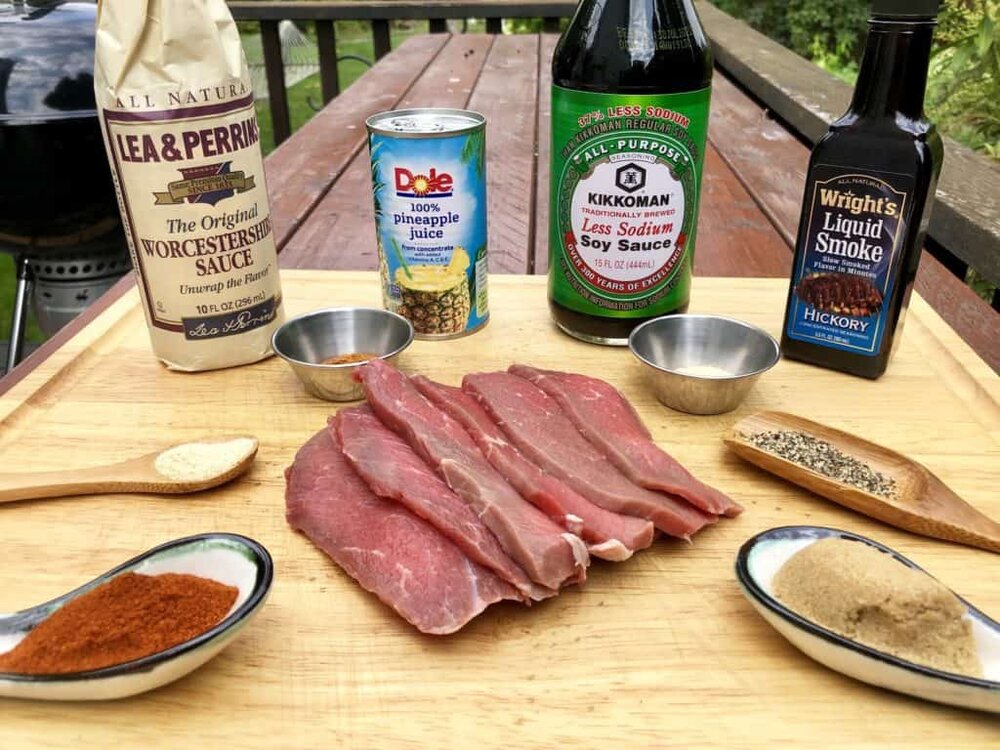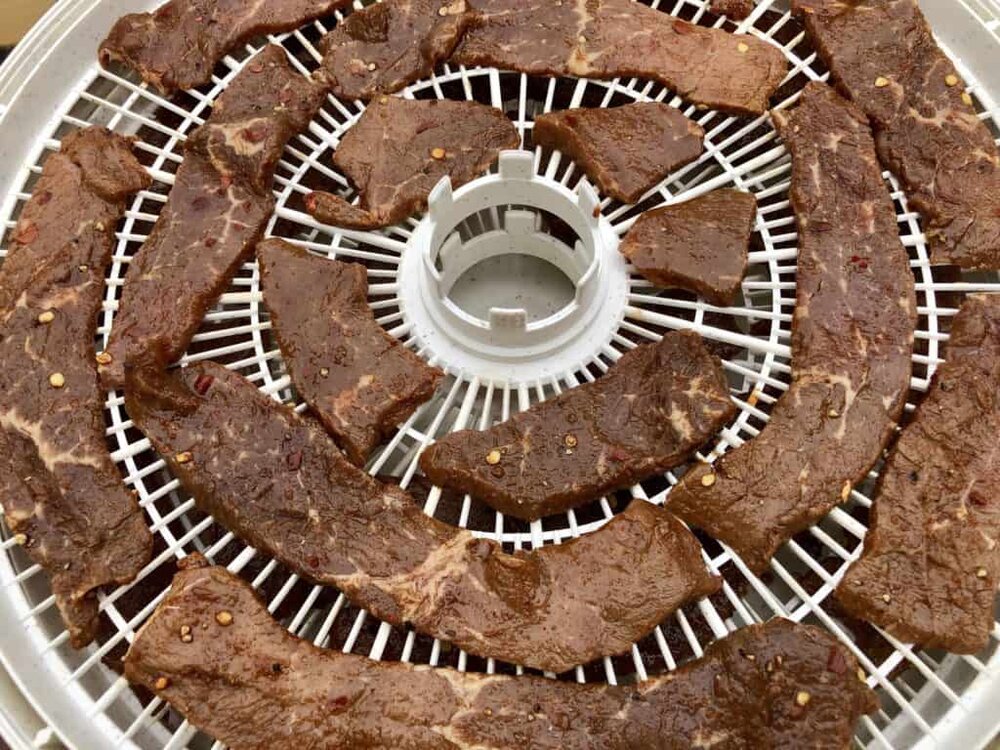When it comes to delicious snacks, jerky is one of the most popular choices out there. With most of us spending more time at home, you can discover how to make almost anything from scratch if you put your mind to it. Thanks to its high protein and mineral content, jerky is not only tasty, but it’s also a healthy alternative to some other snacks. Read on to learn more about jerky and how you can make your very own at home.
What is Jerky?
Jerky is a snack made of meat with lots of healthy nutrients and protein. This delicious snack is made from a variety of different meats that are cooked and dehydrated until they’re completely dried and shelf-stable. When moisture is removed from the meat, it can last a long time without going bad, which makes it an excellent snack for at home and on the go. While beef jerky is a popular choice, you can also enjoy turkey, venison, and other types too, including jerky made of fish or alligator. The leaner the cut of meat, the better the jerky since fat can make the drying process difficult, and your snack to become chewy.
How is it Made?
The perfect jerky starts by cutting meat into thin slices. Once the meat is sliced, it’s marinated with a variety of seasonings and liquids. Salt is also crucial when making jerky since it acts as a natural preservative and speeds up the drying process. All sorts of jerky are fully cooked, which means it’s completely safe to eat. As the meat cooks and dries, it shrinks in size. That makes it a perfect portable snack that packs a powerful nutritious punch.
The Benefits of Jerky
Enjoying a snack of jerky offers lots of benefits besides being delicious, including:
- Portability: You can take jerky anywhere you go since it doesn’t need to be refrigerated. Take it on camping trips, to work, to the gym, or when you’re out on the trail.
- You can eat jerky at home or add it to a trail mix to give your favorite snack a protein boost.
- Jerky is suitable for a wide variety of diets, including paleo and keto.
- You can customize your jerky to your liking by adding your favorite spices and marinades.
Making Jerky Yourself

You can find jerky at almost any grocery store, but you can also make it yourself at home. The key is proper preparation, marinating, and dehydrating. Once you have the process down, you’ll find that DIY jerky is easy and delicious.
Prepare the Meat
First, decide which type of jerky you want to make, whether it’s beef, turkey, fish, or game. Cut the meat into thin slices before you start prepping it. Slice it with the grain if you want it chewier, and against the grain, if you want it to be more tender.
If you want to prep a large batch, roast the meet according to the specific cut you use. Then, store any meat you don’t plan to use right away in your freezer in sealed storage bags or containers. Remember that the cooking process will cause your meat to shrink in size significantly. Please make sure you have plenty of meat to make at least one decent-sized batch after it’s thoroughly dried.
The right cut of beef or venison is the key to making a high-quality jerky. For beef, choose flank steak, London broil, or top or bottom round. If you’re using venison, choose the eye round or any part of meat from the hind legs since it’s the leanest. The cut won’t matter as much for poultry or seafood.
Marinade

- If you want to experiment, make marinades using several different combinations and levels of heat, spiciness, and sweetness. Use each marinade separately for each batch until you discover the one that you like best.
- Use a variety of spices to make your marinade. Some ideas include teriyaki sauce, soy sauce, dried chipotle peppers, garlic pepper, and seasoned salt. A coating of fresh cracked black pepper will take your meal to the next level.
- When marinating, make sure you let the meat sit so that the juices and spices really soak in. Marinate the meat for at least 30 minutes. A full day of marinating is recommended to really let the flavors meld together.
Baking/Grilling/Dehydrating
Once your meat is marinated, it’s time to start making your jerky. There are a few different methods you can use, so it will depend on what you have available and what process you prefer. The time it takes to make your DIY jerky will depend on how much meat you have and which cooking method you use.
- If you want to bake your jerky, put the meat in the oven at a low temperature of about 250 degrees. Place the meat in a single layer on a wire rack sitting on a baking sheet. Wait until the meat is dry and firm, which usually takes about four hours. Flip the meat over halfway through to ensure that it cooks evenly.
- If you want a smokey flavor, you can do this on a grill, too. This is a perfect excuse to dust off your grill or even build a new one. Make sure you keep a close eye on the jerky, so it doesn’t burn. The temperature should remain at a constant 160-180 degrees. Keep the lid closed when grilling and move the meat around every so often to prevent it from over-drying. It should take about four to five hours to cook on the grill.
- Baking and grilling will dry out your meat, but a dehydrator is usually the tool of choice. A dehydrator will ensure that your jerky dries as much as possible. Follow the manufacturer’s instructions for making jerky, which generally requires a cook time of about eight hours. Cooking times can vary depending on how thick the meat is and the brand of your dehydrator.
You’ll know your jerky is done when it’s dry but not crispy. The meat should crack slightly but not snap or break all the way when you bend it. Look for any moist or underdone spots, which means you’ll need to cook it a bit longer.
Food Safety
When cooking with meat, you should always practice some basic food safety cooking, handling, and storage tips. These tips will ensure that your food isn’t just delicious, but that it’s also safe to eat.
- Before, during, and after you cook, make sure everything is clean. This means all countertops, cutting boards, and knives need to be clean before you prep and cook the raw meat. Of course, you should also make sure your hands are clean, so be sure you wash them thoroughly with soap and warm water before you begin. Scrub your hands for at least 20 seconds and dry them with a clean towel.
- Raw meat decomposes quickly, so make sure you use fresh meat when you prepare homemade jerky. Some people like to freeze the meat to make it easier to slice. If you don’t want to freeze it, keep it in the refrigerator in a sealed bag or container until you’re ready to cook it. Never leave raw meat out for more than an hour, or else it could turn or become spoiled. If you need to thaw the meat first, leave it in the refrigerator and not out on the counter.
- Don’t reuse marinade after you make a batch of jerky. Instead, dispose of the marinade safely and make a new batch before you marinate more meat.
- Jerky is a shelf-stable snack, which means it doesn’t need to be refrigerated after it’s cooked. However, any moist or undercooked spots can promote spoilage or cause mold to grow. Never store you’r until you’re sure it’s cooked and dried all the way through. Allow the jerky to cool thoroughly before you put it away.
- To store your jerky, keep it in a cool, dry, dark place. You can keep your jerky fresh for up to two weeks in a sealed container. Food storage containers made of metal or colored plastic is best since it will block light from getting in. If you need your jerky to last more than two weeks, place it in the refrigerator or freezer until you’re ready to eat it.
Enjoy Your Jerky
With its versatility and long shelf life, it’s not surprising that jerky is such a popular snack. As long as you can slice, marinate, and dry meat, you can make your very own homemade jerky right in your kitchen. Look for lean cuts of meat and make delicious marinades that will give your jerky a flavorful punch. With some patience and a bit of practice, you’ll find that jerky is a fun and delicious go-to snack the entire family will enjoy.
Originally posted on Porch.com
Written by: Arturo Peredo
